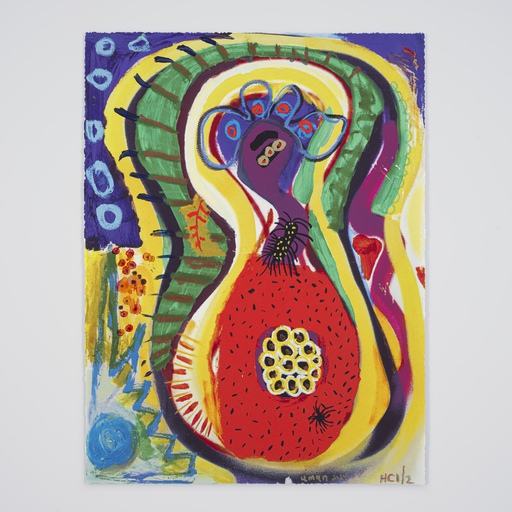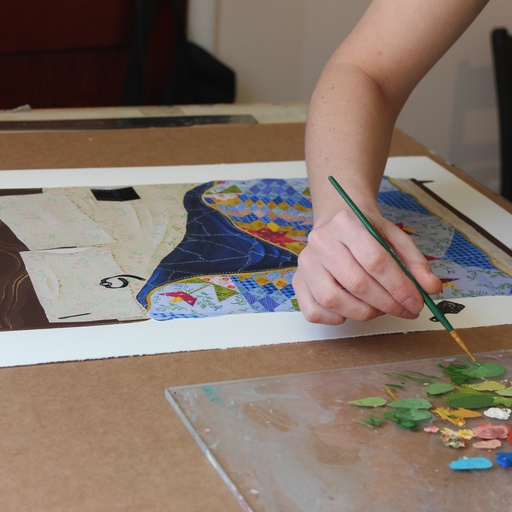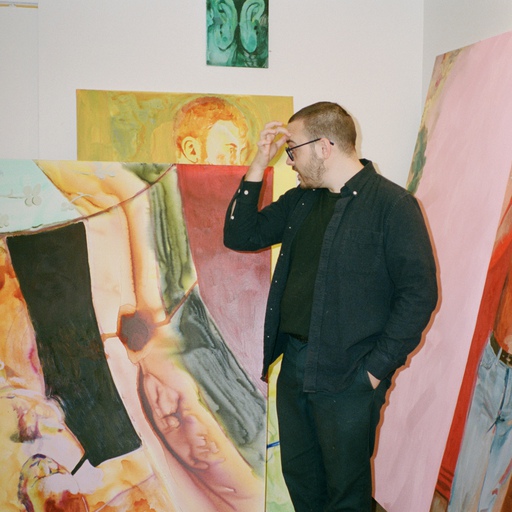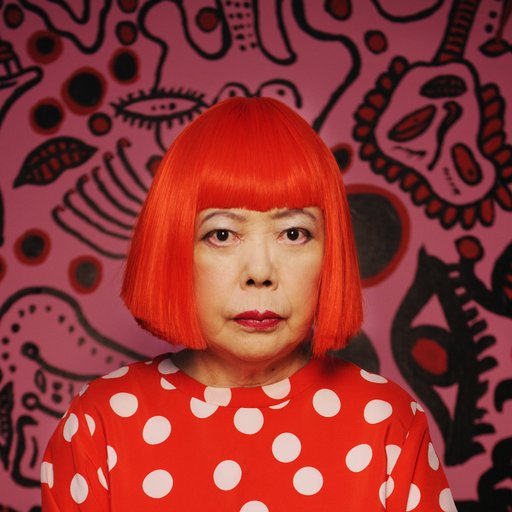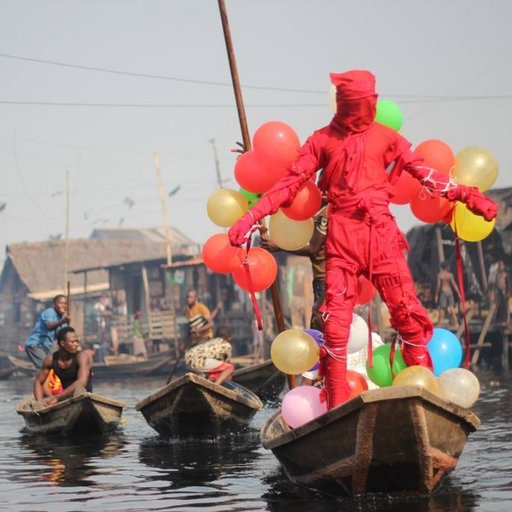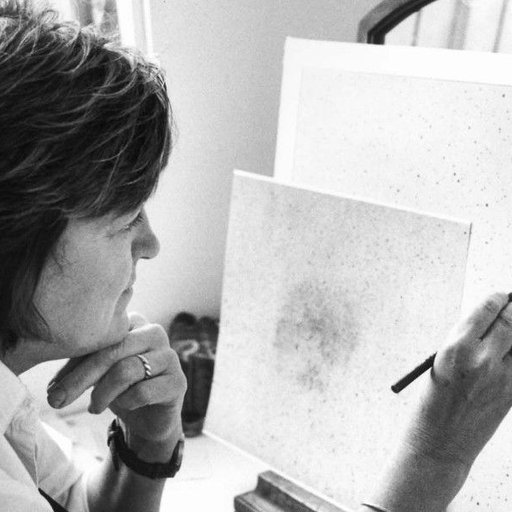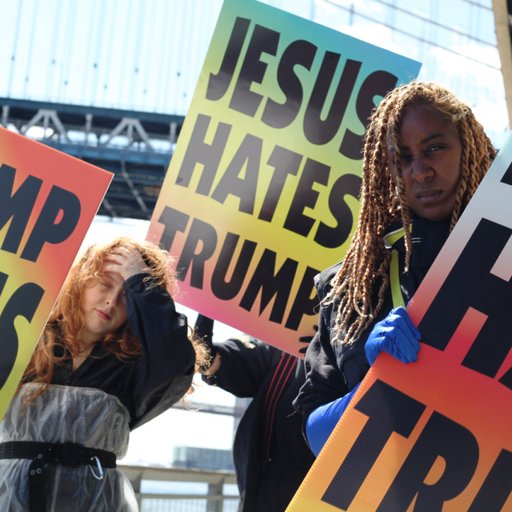On Wednesday, May 17th, the most influential actors and artists working in cinema will flock to the Côte d'Azur for the 70th Festival de Cannes, with the jury presided this year by writer and director Pedro Almodóvar. The festival in the French coastal city was conceived in 1939 as a response to Exposizione d’Arte Cinematografica, the film-centered offshoot of the Venice Biennale that was coopted by Benito Mussolini as a means of disseminating propogranda. However, the Festival de Cannes wasn't immediately the influential affair it's considered today. First, it required one man's vision.
In its early years, the Festival de Cannes screened films nominated by national boards representing individual countries, which favored the patriotic over the artistic. This collusion of politics and cinema came to a head at the 21st festival, which took place in May 1968, at the beginning of an intense period of civil unrest that occupied France throughout the summer. Near the end of the 21st festival, several directors led by iconoclastic filmmakers François Truffaut and Jean-Luc Godard—who, inspired by Dziga Vertov's Man With a Movie Camera (1929), were making films about the unrest in France—stormed the stage and demanded a shutdown of Cannes in solidarity with protesting students and laborers. Five days before the festival was scheduled to close, they complied.
![]() Claude Lelouch, Jean-Luc Godard, François Truffaut, Louis Malle, and Roman Polanski, Cannes, 1968
Claude Lelouch, Jean-Luc Godard, François Truffaut, Louis Malle, and Roman Polanski, Cannes, 1968
Shortly after, in 1972, the organizers of the Festival de Cannes restructured their selection committee such that films were inducted by a board that weighed submissions solely on aesthetic criteria. Gilles Jacob, then a prominent film critic for L'Express, was brought on to facilitate. In 1978, Jacob was promoted to délégué général (general delegate) and in 2000, to president. By the time Jacob stepped down from overseeing the festival in 2014, he was widely recognized as the guiding force though which the Festival de Cannes became commited to cinéma d'auteur, and today he remains president of the Cinéfondation, an arm of the Festival de Cannes that focuses its attention on emerging talent.
In these excerpts from his autobiography, Citizen Cannes, published by Phaidon, Jacob recounts the highs and lows, humors and laments of directing the world's most influential film festival. Here, he writes of the miseries endured under Roman Polanski's 1991 dictatorial jury, the earthquake that struck the moment Clint Eastwood accepted the 1994 seat, and—with grace and tenderness—the mourning of Rome as Federico Fellini's casket was carried through the streets.
...
The Polanski Presidency
![]() Roman Polanski and Emmanuelle Seigner at Cannes, 1991
Roman Polanski and Emmanuelle Seigner at Cannes, 1991
In one corner of Roman Polanski's sitting room stands a punchball. Now a punchball is an agent of wellbeing that helps you let off steam. Mounted on a flexible pole with an eternal spring—you hit it, it comes back—it is an honest partner, always ready for you. How could I have known that it would come to be the symbol of my own silent suffering in that terrible year?
At the beginning of 1991, the year of Van Gogh, Roman and I were having lunch at 15 avenue Montaigne, on the roof of the Théâtre des Champs-Élysées. Given that he was an intelligent man and a world-famous director, the plan was to have him as president. It was an obvious choice. We had known each other since 1966, when I had written an ecstatic article about Cul-de-sac. Today, Roman was jumping from one idea to the next, as if exasperated by the fact that he couldn't go any faster. It was down to the listener to keep up. He was constantly interjecting, "OK?," which from his lips became, "Okaayye." Two things should have raised the alarm with me: his impatience with the waiting staff, and the fact that his favourite film of the moment was Total Recall, a piece of entertainment a million miles from the important auteur-based cinema that Cannes celebrates.
Roman asked for time to think about taking on the presidency, but I got the impression that he was very interested.
To be honest, very few of the big directors can resist such an honour. Carlos Saura and Andrzej Wajda said no for ethical reasons, because they didn't want to judge their peers. Polanski didn't come into this category, but he did insist on playing a part in selecting the jury. The thought of spending fifteen days with someone he didn't like seemed unbearable to him. Finally, he decided to accept.
On 18 April, the festival planned to hold its press conference. For the president of the jury to attend would be a big first. This was what Roman liked—doing something that hadn't been done before, news on the breaking with tradition. For this occasion, he wanted the French TV channel TF1 to cover it. I told TF1 it would be a scoop but live coverage of more world-shaking events—the Gulf War hysteria about chemical weapons and so on—left precious little space for a festival we weren't even sure would take place that year.
The jury began to take shape. Roman and I discovered the dialogue by fax. He liked to decorate his with very lifelike caricatures, which I noticed when we got Alan Parker on board—or more accurately, when he got himself on board. The year before, Alan's film Come See the Paradise had met a mixed response. As a result, he had said to me, "I have come to Cannes five times and I have never got the Palme. Next year, I want to be on the jury." Out of politeness, I had said why not. He took this as a yes, and in February faxed me, "I thought I was going to be part of the jury?" The president had no objections. And so it was an overjoyed Alan who now sent me a cartoon (he too was an excellent draughtsman). Encircled by the Palme, a figure is writing on a table the word "revenge," while a speech bubble says: "At last, I get to be in the firing squad instead of standing against the wall wearing a blindfold." I forwarded it to Polanski. The next day, he made his own addition to the drawing. Now there was a little satanic figure, the spitting image of Roman, with a long nose and childlike mop of hair, holding a gun to Parker's temple with the caption, "That's what he thinks..." thus pulling rank as president!
But first we had to wage a war of nerves. Parker wanted to know where the festival intended to put him up. At the Hotel Martinez, in a large suite overlooking the sea. "Mr Parker was very offended by this," his entourage said. "It has to be the Majestic or he won't attend." The life of Paulette Blondin, in charge of accommodation for festival guests, is rarely a bed of roses. Fortunately, the director Jean-Paul Rappeneau, one of French cinema's greats, and the remarkable producer Margaret Mennegoz didn't make such a fuss. I had difficulty in imposing Férid Boughedir, whose first fiction film, Halfaouine: Child of the Terraces, had become known worldwide. Roman still regarded him as insignificant. Not at all impressed, the witty Férid managed to counter this with a surfeit of politeness: "With all the respect that is due to you, Mr President..." A deal was also made with Natalia Negoda, the young actress from Little Vera.
Roman had wanted well-known people, and here were some more. First, Vangelis, the musician from Chariots of Fire, "because of his human qualities." Vangelis wanted a double suite plus a room with two beds for his assistants and equipment, an enormous quantity of stuff without which he never travelled. The Carlton had to free up the suite next door to my room (Oh no! Does the man with the synth compose at night?). Next we asked the cinematographer Vittorio Storaro, Mr. Three Oscars.
All we were missing now was a star. Faye Dunaway was filming but asked us to keep her on the list, Jack Nicholson was at home watching basketball, and Meryl Streep was pregnant. Days went by and I had no punchball to let off steam. Then we landed the funny woman Whoopi Goldberg (like me she had been a bank clerk—this kind of thing creates bonds). Who would have thought that she would have made more demands about her accommodation than all the rest of them put together? Finally, though, the jury was complete—and a very fine jury indeed! But would they get on?
Cut to the Hotel Lutetia and the day of the press conference. Roman was late. The general secretary of the festival, Erlenbach, kept sending me little notes: "Take your time!" Then, "Speak more slowly!" Finally, just as he said, "Polanski isn't here yet," Roman decided to make his entrance. It was his job to announce the names of the jury. But wearing glasses was for old people and Roman didn't look his age (he probably never will). As a result he got muddled up in his notes. It didn't matter, though, because the journalists had their star.
RELATED: A Critical Guide to Understanding Experimental Film
The next day, commentators picked up on a statement of his that had slipped by unnoticed: "I would like to lead my colleagues in the jury to vote for a film that will give us two hours of pleasure." Who wouldn't have subscribed to such a definition? In his text for the catalogue Roman drove his point home, urging the jury not to be drawn in by "pretentious works made to impress the critics" and which were, according to him, "endlessly boring." Fool that I was! I had gone in search of the man whose mission it was to destroy our perennial objective: helping those auteurs with an ambitious vision to stand up and be recognized.
Roman was thrilled. A photo of him with his wife Emmanuelle Seigner—the very picture of happiness—appeared on magazine covers. He arrived in Cannes like a victorious general, accepting the keys to the town before disappearing into his Tower Suite the Carlton, with the hotel's general manager hanging on to his coat tails.
At the first meeting of the jury he had a video recorder set up—a sight never before seen at Cannes! He did this to show the opening ceremony from the previous year, which, according to him, embodied everything that should not be done. The next day, he himself organized the way the jury should comport themselves. Each member was to come and shake his hand when they took the stage. "Like vassals," whispered one of them. At the end, Roman addressed the room: "We have before us the greatest jury in the world. I hope the films will measure up." It looked like Roman had already hatched a little plan.
En route to the photo-call, escorted by security guards, Roman flicked a switch in the corridor and the whole floor went dark. He laughed. It was explained to him that security would be concerned, for fear of a bomb alert... He said nothing, took three more steps, then bang! He did it again. The lights were put back on. Two more steps and bang! This spoilt child was discarding everything that was respectable with a hundred and one childish games... And yet, after discovering that his suite was situated over the nightclub and that the DJ liked to crank up the volume at three in the morning, Roman the merry prankster suddenly reverted to true presidential form when, imperious as ever, he came into my office the next day to complain...
![]() Still from Joel and Ethan Coen's Barton Fink, 1991
Still from Joel and Ethan Coen's Barton Fink, 1991
Neither Pierre Viot nor I usually attended the preliminary meetings, but we soon got to know what was going on. Word was that every time a jury member tried to defend a film that Roman didn't like, he would cut them off with the line: "You cannot be serious! Not another word about it... Okaayye?" I could only presume that what he wanted when the time came was for the jury to follow him like the Pied Piper of Hamelin. There were rumblings of rebellion within the jury. After three days, Roman called me: "We're not exactly spoilt for choice." I seethed inwardly. During the screening of La Belle Noiseuse, a film whose brilliance was repayment enough for its excessive length, Dominique Wallon—the director of the CNC (Centre National de la Cinernatographie)—was seated between Roman and Vangelis. They leaned across him to exchange a volley of sarcastic comments. Dominique confided to me that he was quite disturbed by it. Seated behind them, Bhougedir also grumbled. The next day, Jean-Paul Rappeneau began to worry: "Are you aware he doesn't like anything?" I reassured him as best I could. And then we had another first in the history of the festival when Vangelis, making the ultimate insult, asked the secretary of the jury if they were obliged to award a Palme d'Or. Charming! As if none of the films, not a single one of them, was worthy of the accolade! "We have to? Even if we don't see anything we like?" I confirmed categorically that they did.
Films came one after the other, none finding favor. Nor was Alan Parker (another fine idea!) by any means the last to open his mouth when it came to criticism. When they turned their attention to Spike Lee several jury members were taken with his Jungle Fever—and this time it was not Roman who came forward to counter their enthusiasm but Parker. So did Whoopi, who hated Spike Lee almost as much as he hated her; he had apparently once said that she wore blue contact lenses because she was ashamed of being black... malicious gossip to blame yet again. Jean-Paul began to despair.
Every day, as Polanski appeared at the top of the steps, looming like one of the characters on the staircase in his film The Fearless Vampire Killers, he would have a sardonic look on his face and utter quietly, "Is this all you could come up with? Was there really nothing else?" I would have liked to come back with something, but preferred to meet his gaze with a gentleness that surprised even me.
We were now at the second Saturday of the festival, twenty-four hours away from the awards. I had kept my big hitters for the end. Still to come were The Suspended Step of a Stork (but with this jury, Angelopoulos didn't stand a chance), Barton Fink by the Coen brothers, and Van Gogh. A miracle occurred: Polanski was all smiles when he came out of Barton Fink. He walked towards me, took my arm, and said, "It's good, isn't it?"
At that point circumstances didn't allow me to play the wise guy, even if deep down I preferred Van Gogh. "Oh, did you notice? This film is a homage to Polanski..."
"Do you think so?"
"Yes, there were plenty of references—Repulsion, Cul-de-sac, Rosemary's Baby, all the great ones..."
His face lit up immediately and I distinctly heard the sound of rejoicing bells. They were pealing out, overwhelming me, invading my head and anaesthetizing me. And now he was a little devil pulling the ropes, laughing like a madman—and at the end of this rope, strung up on the tympanum, someone was hanging. And this hanged man was me.
"Are you all right?"
I opened my eyes. Roman was still in front of me.
"Yes, yes, just a little dizzy spell..."
Roman was smiling. He had found his Palme d'Or and his victors. They were young, not very well known and made a kind of cinema close to his own in his early years. Finally, let us not forget, they were very talented.
Later I came across Rappeneau and he was relieved: "Finally, he likes something!" And it appeared that almost all of the jury liked Barton Fink too. I too was relieved—without losing sight of the fact that at no point had anyone said, "And what about Pialat?"
Clint Eastwood on the Richter Scale![]() Clint Eastwood at Cannes, May 21, 1988
Clint Eastwood at Cannes, May 21, 1988
Winter 1994. Even on a good day, Clint Eastwood was hardly what you could call talkative. And this would not be a good day. What a metamorphosis: the cigarillo-smoking cowboy in spaghetti westerns was now a universally acclaimed filmmaker. But then as now, Clint possessed godlike good looks. His face had charm and refinement, along with that big childlike smile. He had the elegance of one of the greats, and such red-carpet style!
I have been everywhere in Hollywood: the Beverly Hills Hotel, the Beverly Wilshire, the Chateau Marmont, the Peninsula and so on, but I always come back to the Four Seasons. To see Clint, I had asked for the best table. At the designated hour Joe Hyams, who managed Clint and Stanley Kubrick (a full-time job!) at Warner, arrived, ready to monitor events. The restaurant was lively. A slick gringo was chatting up a young Mexican woman, two businessmen were finishing their lunch and a red-haired woman with a posh English accent was making a show of being strict with her small daughter.
Out of the corner of my eye I watched the door and suddenly Clint turned up, his slow, supple gait like some big wild animal as he loped across the room. In order to inspect the menu he pulled out of his pocket a tiny eyeglass, which he balanced on his hand. The age of long-sightedness may have been approaching, but heroes don't wear glasses. He accepted a glass of wine and ordered a hamburger. I ordered something light—Eggs Benedict, only eggs and a few chips covered in Hollandaise sauce... Good humor prevailed at the table and Clint announced in his legendarily laconic way that yes, he would be president of the Cannes jury. It was not the first time we had had discussions about the jury. I had often received Clint at Cannes, showing Pale Rider, the western that he had directed, as well as two other films including Bird. That was in 1983, the year of the first big dinner we held for Jack Lang, the culture minister, and we had put on a show: little plates on larger ones, a spectacular marquee and so on. At my table Clint, Greta Scacchi and Charles Aznavour had greatly enjoyed themselves, while on the minister's table Milos Forman hadmonopolized Princess Caroline of Monaco and Harrison Ford had got bored... Clint had not won that year, but he had enjoyed coming. He had then sung the praises of Cannes to Barbra Streisand, who in turn had told George Lucas about it. This led Spielberg to come with The Color Purple in 1987; Paul Newman and Joanne Woodward followed in 1988, and Robert Redford and Meryl Streep in 1989. No doubt about it: that had been a very good return on my seating plan!
On this occasion we talked about the villa that Warner wanted to rent for Clint and his family at Cannes: his new wife Frances and their little girl. Warner was already dealing with the organizational side of things and a good job too, because he needed a big house that was comfortable, secluded and had a pool. Something calm and not like here...
To begin with I didn't pay much attention to the murmur I could hear, which didn't appear to be anything to worry about. But soon I couldn't catch anything Clint was saying and the noise in the room suddenly seemed very loud. A dog that I hadn't noticed before was barking plaintively. The little English girl was walking around the tables looking at guests with an insistent expression. I couldn't understand why the waiters' rapid footsteps were making the floor vibrate, as if it were bouncing beneath their weight like a plank. The hotel should really address this detail, I thought. A few minutes later, I raised my hand to order another bottle of wine and asked if the windows could be shut as the trucks outside were preventing me from hearing anything. I thought the cops must have diverted the traffic on Sunset Boulevard, to go past the hotel. My ears were buzzing. It was very hot, and I didn't feel like yelling over the noise to get the waiter to come over. Now it felt as if the trucks were driving through the dining room, as if the rumbling sound were coming from the bowels of the earth. But the subway didn't come this way! This really was a strange hotel. Outside, the Filipino guys who usually hung around to park people's cars had disappeared. The sound of drilling beneath me had become unbearable—a hideous din, the sound of primordial chaos.
![]() Still from Clint Eastwood's Pale Rider, 1985
Still from Clint Eastwood's Pale Rider, 1985
"Look at what you've done!" Clint said. I took a look. Joe's glass of wine has tipped over onto the tablecloth. At this exact moment I saw that just above our heads the monumental chandelier, the hotel's pride and joy, was oscillating... and I finally realized that the earth was shaking. Given the circumstances, why had it taken us so long to grasp what was happening? Particularly in a part of the world whose population was seemingly always waiting for disaster, always wondering: Is this the big one?
I felt my heart pounding in my chest and an unrecognizable voice took over in my head, telling me to run. I had already been in two or three earthquakes; once, at friends', a few books fell off the shelves, and another time, on the freeway near Berkeley, the car lurched a little, no big deal really, just a few jolts. Nothing like the intensity of this one.
People in the dining room had got up and were pushing their way to the entrance. Suddenly the place had emptied. A waitress began to cry. I knew I needed to go and shelter under the doorframe and not stay a second longer underneath the chandelier, which it dawned on me, probably weighed a few tons. The noise became even more intense, like a train roaring out of a tunnel.
I looked at Clint. He gave no sign of alarm. Even if the "day of the locust" was upon us, his impassiveness forced me to feign the same when in fact panic was overwhelming me. One year at the Lycée Carnot, on the only day I hadn't done my homework, the teacher had decided to look through her notebook to select a boy to interrogate. During a minute that lasted all eternity I had forced myself not to go into a panic by saying to myself: not me, not me, not me, hoping to make it not happen. I had even promised myself I would marry her if she didn't call out my name. "Jacob to the blackboard!" This is how the bladder of a seven year-old boy imitated the passage of time.
RELATED: Director Steve McQueen on What He Learned From Andy Warhol and 1930s French Film
A fat lot of good dying with Clint would do me. For fear of the consequences, I didn't dare repeat: not me. In my mind I played out what the newspapers would say next day if hundreds of people died. It served me right for having got myself into this mess. If we made it, I would go up to my room and call my wife back home. No, that would be a stupid thing to do because of the time difference. We should stay calm and not take the lift. Not now. And even if it stopped, wouldn't there be aftershocks? Would we have to wait and go through all this again, this waiting for it to stop? Clint, looking as big and strong as Samson, was I think, smiling at this point. Maybe being with him means nothing can happen to me...
A bit of dust started to fall from the ceiling. Joe dived under the table. Let's just say he was getting his napkin. Thirty-seven seconds went by. More like thirty-seven centuries. The train sound intensified to a convulsive roar and the chandelier continued to vibrate dangerously.
And then, that was it.
The train stopped, the trucks went back to Sunset Boulevard, the waiters returned, the guests trailed back and the Filipinos started running around again. But there was still tension, as if the aftershocks were getting ready to give us a bastardized version of events.
Then, in this silence regained, the voice of Clint could be heard.
"Check, please."
He was asking for the bill. Everyone burst out laughing, applauding him. Through his laconic humor he was able to re-establish that exact sense of equilibrium without which "this life is but a long slow descent on skis into a vale of tears." I have forgotten who wrote that. Nobody among us would have doubted that the quake's epicenter measured 5.9 on the Richter scale.
"Joe, it's time to go," Clint added, fixing the phrase with that famous rictus of his—smiling yet not smiling, and seeming a tad frozen to me now.
"Oh," Joe uttered. It was all he could manage to say.
Plates and cutlery, as well as the guests' food, were strewn all over the floor. But it didn't matter. Nothing really mattered.
"Do you think you could still spare me a minute?" I enquired in a fit of nervous yawning.
At the next table, the young English woman was regaining her composure. A waiter approached, picked up her little girl's doll and said, as if to forget that he had abandoned her as he fled the waiters station,
"Honey, do you want me to get you some chocolate ice cream?"
"No," said the little girl.
"We say, 'No, thank you,'" corrected her mother.
Fellini Flanked By Two Policemen
![]() Federico Fellini's funeral, Rome, November 3, 1993
Federico Fellini's funeral, Rome, November 3, 1993
July 1993. A press release arrived from Agence France-Press (AFP): Fellini had just fallen ill. It was a stroke.
I dreamt of seeing his intense but tender eyes, or hearing his little high-pitched voice, so I telephoned his press officer.
"Can I have a word with Federico?"
"No phone calls but he is getting better," gently lied Mario Longardi.
I understood my friend was going to die.
I can see him now, on a morning in February at his Teatro 5 office (the famous main stage set of Cinecittà), where, with his color felt tip pens, he mindlessly scribbles images of well-built matrons or sketches the poster for the festival, the ocean liner Rex in the film Amarcord, its proud stern cutting through the sea. Also at Teatro 5, I have another image in mind: under the tarpaulin of the set of E la nave va (And the Ship Sails On) some grinning set-hands are operating a sea more real than reality. I can also see him at his home in the Via Margutta, his feet shod in strange oriental slippers—with that look he had, as if he was perpetually embarrassed about refusing any of my requests. I can see him at Cannes as well, at a press conference, his greying mane too long at the neck, his eyes bright, looking tortured at having to talk about himself, or, even worse, explain his films.
"He knows his friends are thinking of him," Mario told me. "He is in a clinic in Ferrara, working hard on his rehabilitation six hours a day. Giulietta has collapsed. She is in a hospital in Rome. Complete rest. But Federico has not lost his sense of humor. 'Ferrara is not my kind of town,' he confided to me. 'Ferrara is a town for Antonioni.' Of course, his kind of town is Rimini, the town in Vitelloni. The sea in winter, the low clouds, the young people hanging around, Alberto Sordi, pasta... Do you know," Marco told me lastly, "that in his early childhood Federico was a scrawny child, who even on the beach refused to wear swimming trunks? To tease him, the other children would call him Gandhi."
A little while after his stroke Federico decided to make a bid for freedom, fleeing the hospital in Rimini where he had been transferred. He had of course wanted to celebrate his fiftieth wedding anniversary but he had a relapse. Three days after his escape, he fell into a deep coma.
On October 31 AFP announced that Fellini had just died. I felt like an orphan, and I was not the only one. All of us cinephiles called each other to exchange memories and anecdotes. We all agreed: of all the people who shouldn't be afflicted in the brain, it would certainly be him—the director who specialized in fantasy, memory, and intimacy.
Going through my papers, I found the menu for the dinner given at the festival in his honor for Intervista, together with a letter explaining that without the help of a property developer the film would never have been financed, or, for that matter, presented at Cannes. The wife of the millionaire wanted to appear on the red carpet. How do masterpieces come about?
On November 2 I was attending a reception at the Ministry of Culture in the rue de Valois, when the minister pulled me aside.
"Listen," said Jacques Toubon, who addressed everyone in an informal way. "Tomorrow I am taking you to Fellini's funeral. Eight o'clock, Villacoublay airbase..."
I cancelled my appointments.
![]() Still from Fellini's Roma, 1972
Still from Fellini's Roma, 1972
At seven-thirty, in the formal reception room at Villacoublay, Costa-Gavras, Nicolas Seydoux, Anne de Gaspéri and Toscan du Plantier were already having coffee. We were still waiting for Anouk Aimée, who played Luisa in 8 1/2. The minister was getting impatient, so we began to walk towards the Fokker plane. Finally she appeared on the steps.
At ten-thirty we were at Rome's military airport, where the ambassador was standing to attention and we were met with a military guard of honor. Our little gang dashed into a convoy of cars that drove the wrong way through impossible traffic. In Italy, siren vehicles in charge of clearing the way drive behind the main car, and so the minister's car took all the risks. Behind them, our driver speeded up as well, to stay close. As we entered the city, a symphony of car horns greeted us. All roads to Rome were blocked. In 8 1/2, Mastroianni gets out of a traffic jam by flitting over the tops of cars...
Our nerves in shreds, we finally arrived at two minutes to eleven.
RELATED: Underground Legend Jonas Mekas's Guide to Becoming an Avant-Garde Filmmaker
The Piazza della Repubblica—where the basilica reserved for state funerals, St Mary of the Angels and Martyrs, can be found—was packed with people. It was a sombre, uniform crowd, gathered under a pale autumn sun—nothing like the usual Roman crowd. In Naples, if you see a funeral procession, you pretend to have horns and touch your testicles. Not here. We had to push our way through the crowds to make them part. We hung on to each other as we tried to get inside, snaking our way around the Italian Rai TV cameras. Our group was led to the right of the choir, to seats reserved for the diplomatic corps. I squeezed the hand of my colleague, Gian-Luigi Rondi, director of the Venice film festival, the Mostra, who as usual was dressed all in black. Not far from me Monica Vitti, looking very sad, gave me a little wave. Vittorio Gassman arrived a little later. Magali Noël and Sandra Milo were crying. Even more moving, all the Cinecitta people were here—the craftsmen, the technical people, and the designers, all recognizable as much by their simple clothing as by the enormity of their grief. It was cold. I had kept my coat on. Soon afterwards, Mario Cecchi Gori, the producer of La Voce della tuna (The Voice of the Moon), sat down behind me. He looked terrible, which I put down to emotion. How could I know that he too would be swept away the day after by a heart attack? It was as if the balance in all things must be kept, like Cocteau's death being eclipsed on the same day by Edith Piaf's. Soon, a round of applause Italian-style erupted outside. It swelled increasingly as it came closer and closer to the basilica. The historian Lorenzo Codelli told me how, in contrast to their silent respect for Fellini's cortege, the crowds had whistled at the coffin of another man brought here, a socialist who had been convicted of corruption.
![]() Fellini on the set of Fellini Satyricon, 1969
Fellini on the set of Fellini Satyricon, 1969
Who would have thought that Fellini would enter heaven flanked by two policemen? His coffin was carried not by filmmakers but by unknowns, framed by huge-looking policemen with plumage in the national colors of green, white, and red. Under a wave of applause, as if in a kind of ultimate homage to the man who invented the word "paparazzi," the photographers halted the flash of their cameras. In the choir poor Giulietta, lifeless, like a little mouse huddled in the arms of her closest relatives, did not react until the end, when the mortal remains of her husband were taken away, and with her hand she bade him a long, heartbreaking goodbye.
Opposite me, lined up like figures on a firing range, stood the prime minister and the presidents of the senate and chamber, as well as the president of the council. They had assumed suitable expressions, those of funerary, stony-faced effigies. Nearby, the Italian director Francesco Rosi represented his colleagues. Other artists were scattered throughout the nave: I saw Antonioni looking angry, as if troubled by the fact that he had outlived Fellini, as he had also suffered a stroke—earlier than Fellini's too. Was it not deeply symbolic of the recent fate of Italian cinema that destiny chose to strike all three of Italy's greatest directors, Visconti, Antonioni, then Fellini, with the same paralyzing condition?
Suddenly mass began. As always, the organ drew a tear from the young Jewish boy in hiding as a seminary student. Everything was grandiose, done with pomp and an attendant splendor (Verdi rather than Nino Rota), but the absence of darkness, because of the television screens that scattered light across the vaulted ceiling, turned the whole thing into a show business spectacle. I half expected to see the priests start dancing. All of them—cardinal, bishops, prelates, deacons, sub-deacons and archpriests—already irresistibly evoked the world of Fellini, particularly his religious fashion show in Roma (oh, those nuns on roller skates, the wimples flapping like wings!). It seemed as if the director had just slid behind the camera one last time, to enact his craziest of fantasies: directing his own funeral.
I was sure he was there, flitting around us or sauntering about somewhere in the transept in his little soft checked hat, herringbone overcoat and red scarf, with a megaphone in his hand, all smiles, winking at a set-hand, rearranging a surplice, walking through the groups of people, thanking us for taking the time to come and apologizing for the delay; surely it must be time for pasta now? And at the end, as a reedy-sounding bell announced the elevation of the host, he approached the bier, knelt down and looked back at me, teasingly asking me in his flute-like voice, "Do you know what died today? Cinema died, killed by television."
There was another moving moment when the trumpet belted out a variation on the theme of Gelsomina. The note rose, rose again with the choir, the last breath of a dying genius—and a whole world that had gone with him.
Outside the basilica, the crowd had got even bigger. Silence engulfed the whole scene. Italy had just lived through the burial of its own Victor Hugo.







